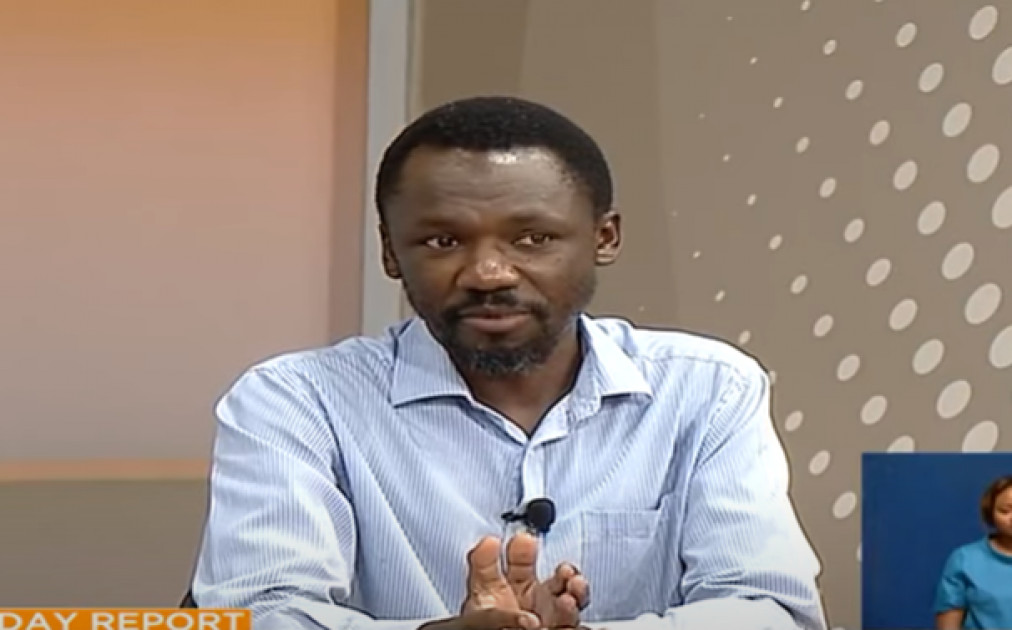‘It is not possible,’ Economist Kwame Owino dismisses Kenya Kwanza figures on national debt

The Institute of Economic Affairs CEO Kwame Owino during an interview on Citizen TV on February 21, 2022.
The Institute of Economic Affairs CEO Kwame
Owino has dismissed figures presented by Amani National Congress (ANC) leader
Musalia Mudavadi on the country's debt following the handshake between President Uhuru Kenyatta and ODM leader Raila Odinga.
This comes after Mudavadi, a Kenya Kwanza
Alliance co-principal, on Monday warned the National Treasury against
committing the country to any more debts.
According to Mudavadi, Members of Parliament
should ignore calls by Treasury Cabinet Secretary Ukur Yatani to modify the
debt ceiling to 55 per cent of the country’s GDP.
The ANC leader similarly alleged that the
country’s debt stood at Ksh. 4.5 trillion prior to the March 2018 handshake
between President Kenyatta and Odinga, and has since risen twofold since.
“The contest is how much was owned before
2018 and then thereafter. It is not possible under any mathematical figure to
have had Kenya’s debt at Ksh.4 trillion because the reason the debt ceiling was
extended was that the debt ceiling was at Ksh.6.5 trillion by the end of 2017,”
said Owino during a interview on Citizen TV’s Monday Report show.
The reason Kenya's debt ceiling was extended,
Owino continued, is because the country's loans position was normal and
substantial enough to allow for it, as such it would be unreasonable to purport
that Kenya is adding onto its debt with no intention of paying it
back.
"I think Kenya Kwanza needs to recheck
those figures,” he said.
Owino however clarified that Mudavadi’s
utterances might have had some truth to them especially since the national
exchequer’s way of measuring debt does not involve the government underwriting
debt from other State corporations or even countries.
“The Constitution requires that the national
government actually guarantees debt so if you put that all together it makes it
much larger than what was declared conventional but the idea that it was Ksh.4.1
trillion by 2017 is obviously just a lie or completely mistaken Mathematics
because it is not possible because the extension was made at the place of Ksh.6.5-7
trillion so at that point, it was already a breach,” he explained.
Owino similarly chimed in on Kenya’s cost of
living saying an increase in the price of commodities does not necessarily
translate to a surge in the cost of living, citing that increased price of
commodities is a result of high taxes slapped on many of the commodities that
Kenya imports.
“Globally, petroleum prices have been rising
in the last few months. The Kenya shilling has also weakened from last year
October and this is not aiding our situation,” he said.
“Additionally, Kenya does not produce enough
common items for itself hence has to import. If you are importing things
obviously that will have an effect on commodity prices.”
Want to send us a story? SMS to 25170 or WhatsApp 0743570000 or Submit on Citizen Digital or email wananchi@royalmedia.co.ke
Comments
No comments yet.


Leave a Comment